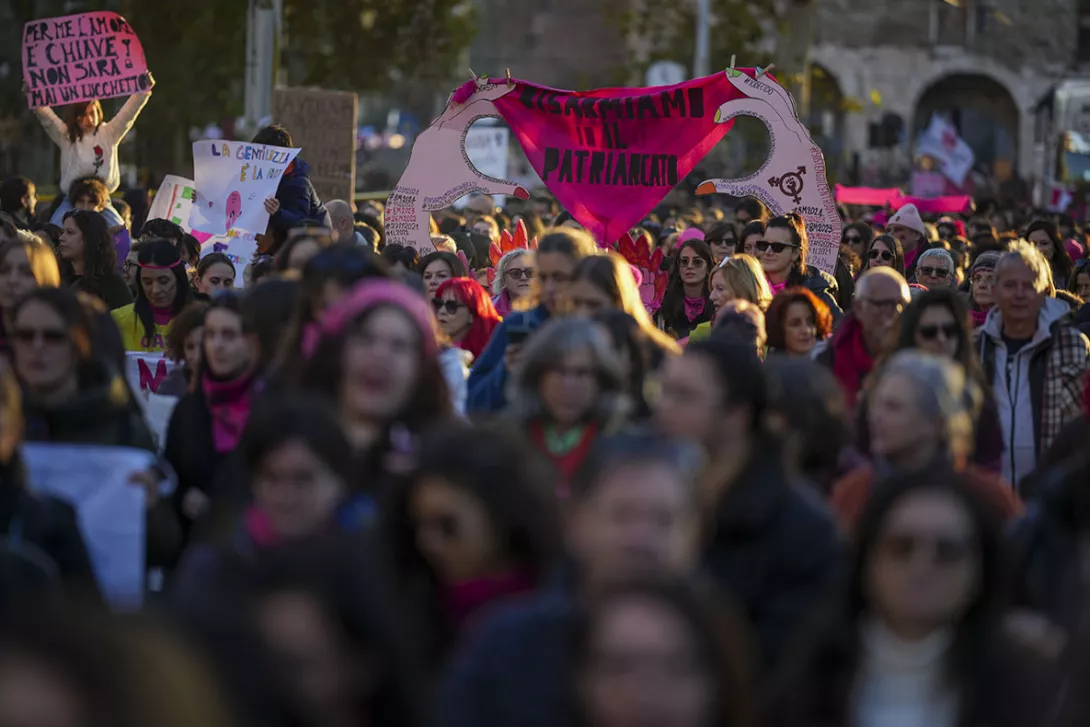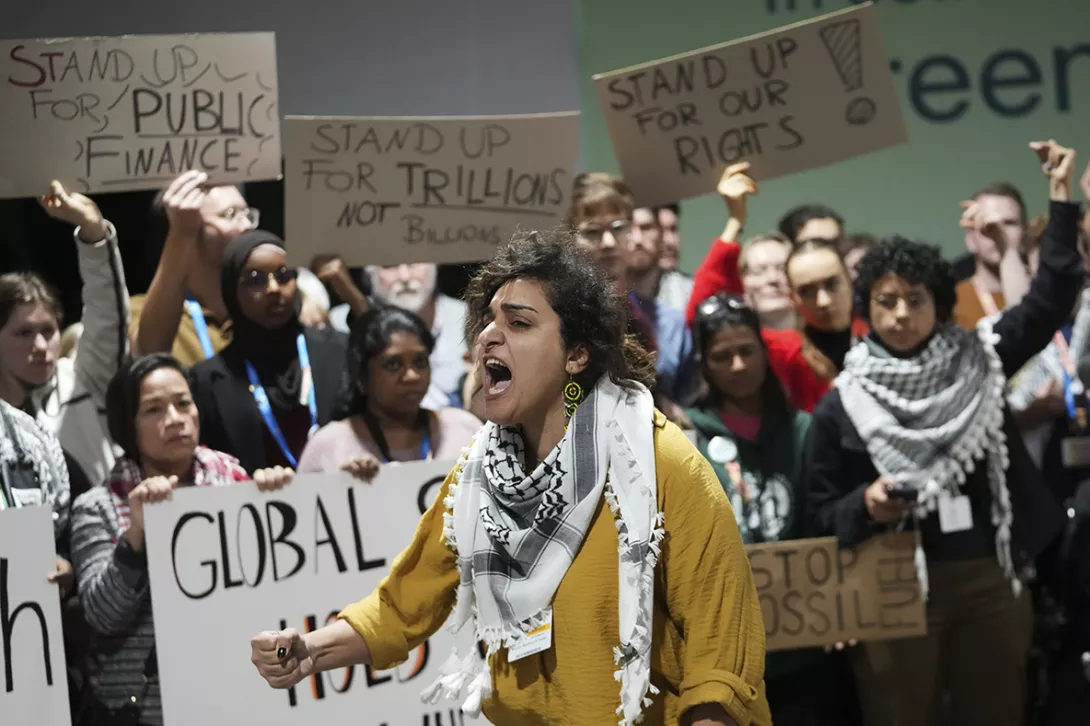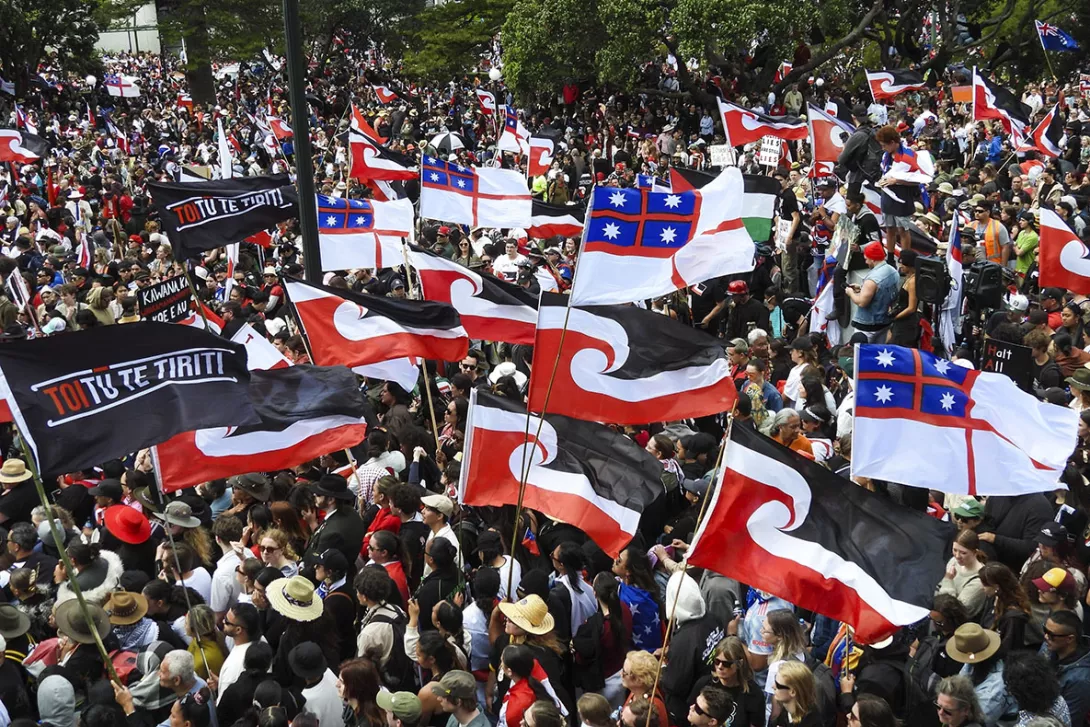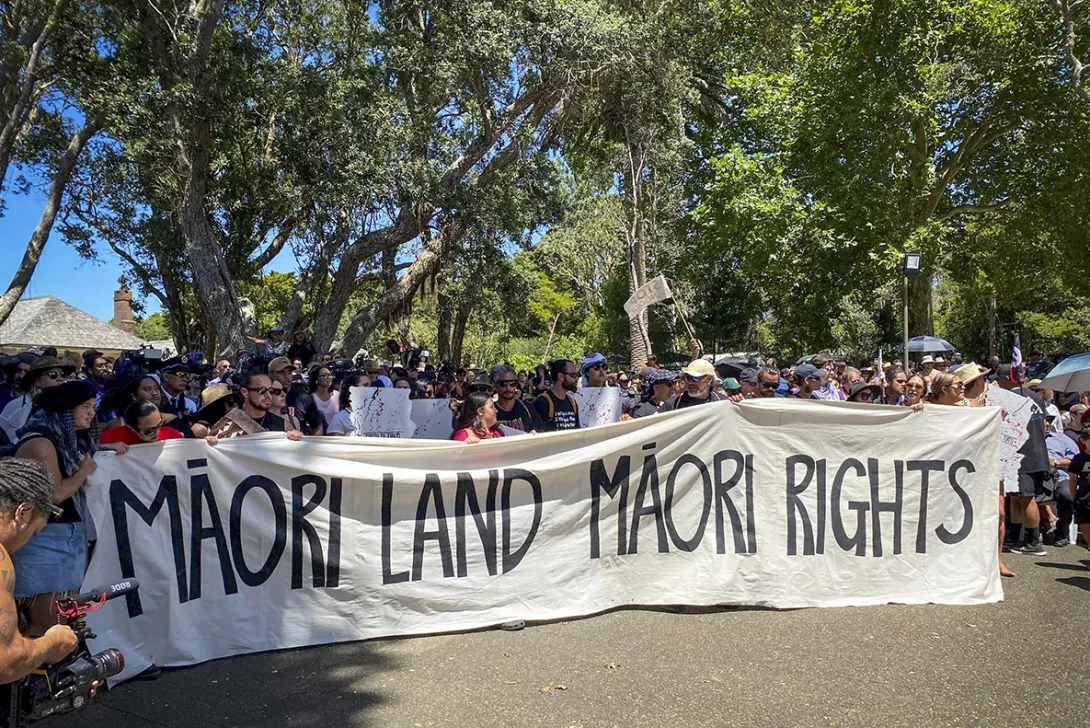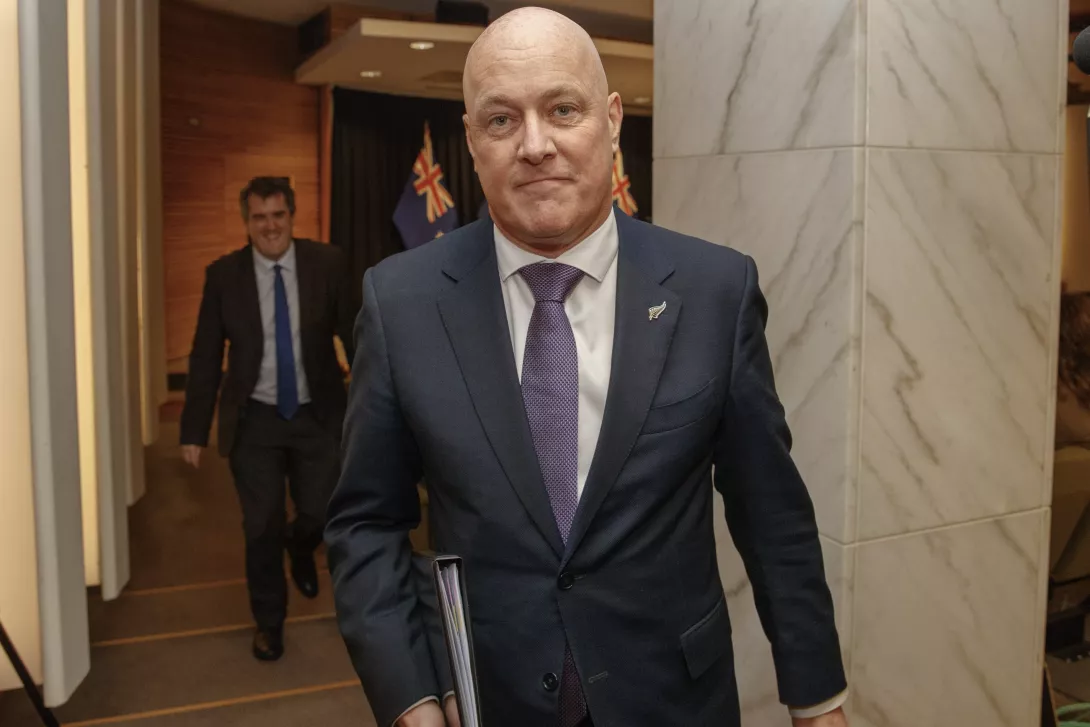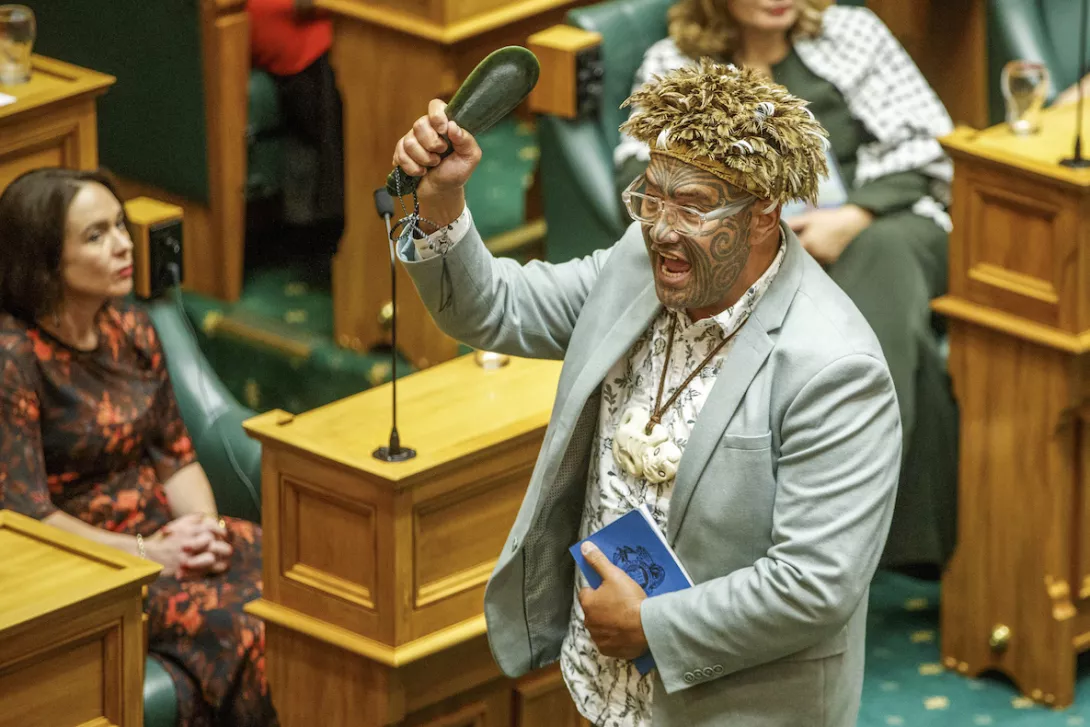
THOUSANDS of protesters rallied against the New Zealand government’s indigenous policies today as the parliament convened for the first time since October elections.
Demonstrations in the capital, Wellington, and in about a dozen other New Zealand cities and towns were organised by the Maori Party, which advocates for the rights of Indigenous New Zealanders.
Protesters demonstrated peacefully outside parliament against what they described as the “anti-Maori” policies of the newly elected conservative-led coalition government.
Maori Party co-leader Rawiri Waititi said the new policies of Prime Minister Christopher Luxon’s administration would take New Zealand “back to the 1800s.”
“Our protest this morning was an activation of our people,” Mr Waititi said.
The National Party-led government promises to review the Treaty of Waitangi signed by British colonists and Maori chiefs in 1840.
The government has also said that it intends to make changes to the Maori Health Authority, a statutory agency responsible for ensuring that the New Zealand health system meets Maori needs.
Mr Luxon said his government was “deeply committed to improving outcomes for Maori and non-Maori.”
Lawmakers were sworn in after elections on October 14 ousted the centre-left Labour Party government that had governed since 2017.
The Maori Party won six of the 123 seats in the parliament.
Party lawmaker Takuta Ferris wore a Maori headdress and performed a haka, a traditional dance or challenge accompanied by a chant, as he crossed the chamber to make an affirmation that confirmed his place in the parliament.
Some Green Party lawmakers wore keffiyehs over their shoulders in a sign of support for Palestinians in the Gaza war.
The National Party has formed a coalition government with the right-wing New Zealand First party and the libertarian ACT Party.
ACT Party leader David Seymour described the Maori Party protests as “divisive theatrics” that showed disrespect for the election result.



